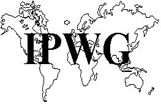Abstract
Sex politics and rape during the war and its implications for the future:
A gender perspective
This paper aims to account for the effects of sexual violence in Kosova during the recent war. As it is well know sexual violence during armed conflict is not a new phenomenon. In her book Against Our Will: Men, Women and Rape, Susan Brownmiller presented stark accounts of rape and other sexual atrocities that have been committed during armed conflict throughout history.
A turning point was made in the early 1990s as a result of sexual atrocities committed during the conflict in the former Yugoslavia, and it seems that the issue has emerged as a serious agenda item of the "international community".
Nonetheless, violence against women is not restricted to war; its roots are well established in peaceful times. Thus use of violence against women in times of war cannot be understood without understanding preexisting sociocultural dynamics. As anthropologist Gail Kligman has argued political self-determination in the region has always been linked to the control of women_s bodies. Rape then must be considered as a weapon of war not just a crime of war.
I argue that war rapes in Yugoslavia would not be such an effective weapon of torture and terror if it were not for concepts of honor, shame, and sexuality that are attached to women's bodies in peacetime. I would argue accordingly with anthropologist Marija Olujic that the final transformation (at the war's end), which is more important in the context of this paper, _is the reformation of the social body back into the individual body, making the individual body once again the focus of dominance and aggression as the acceptable social "order" (Olujic, 1998).
Rape thus becomes an assault on both the individual and her family and community. As well as an attempt to dominate, humiliate, and control behavior while it disables the bonds of family and society and forces entire communities into flight. I will show how this has also been the case in Kosovo, where in a context of nationalism only a gendered perspective (one which links sexuality to national identity) can adequately ascertain for women as agents in shaping and defining the condition of post-war Kosova and not just bystanders, or symbols of traditional life whose roles are created by masculine state/power politics. I wish to explore the strategies in which women engage to create new definitions of nationalism and "womanhood".
In this respect the "silence" of women in Kosova becomes a strategy of resistance not a symbol of passivity and powerlessness.
For the full text please contact the author !
|




